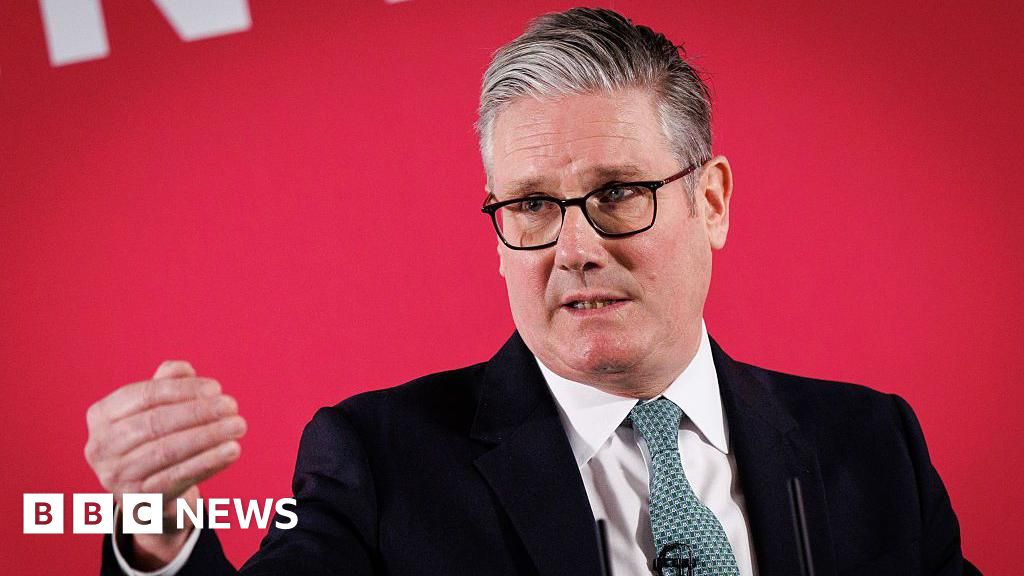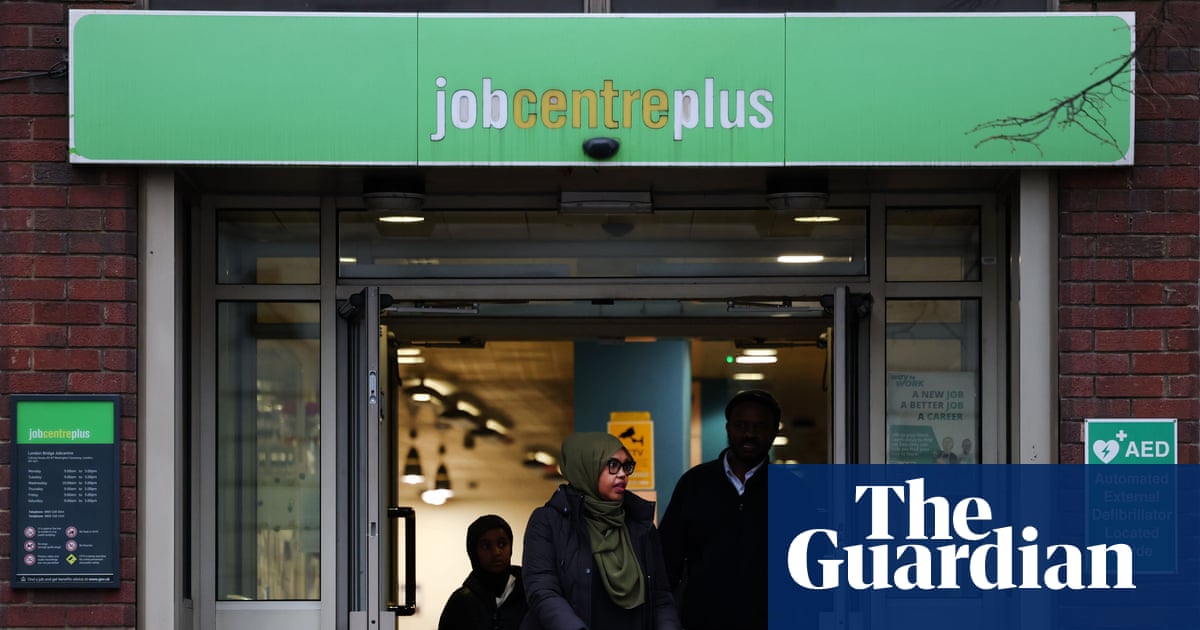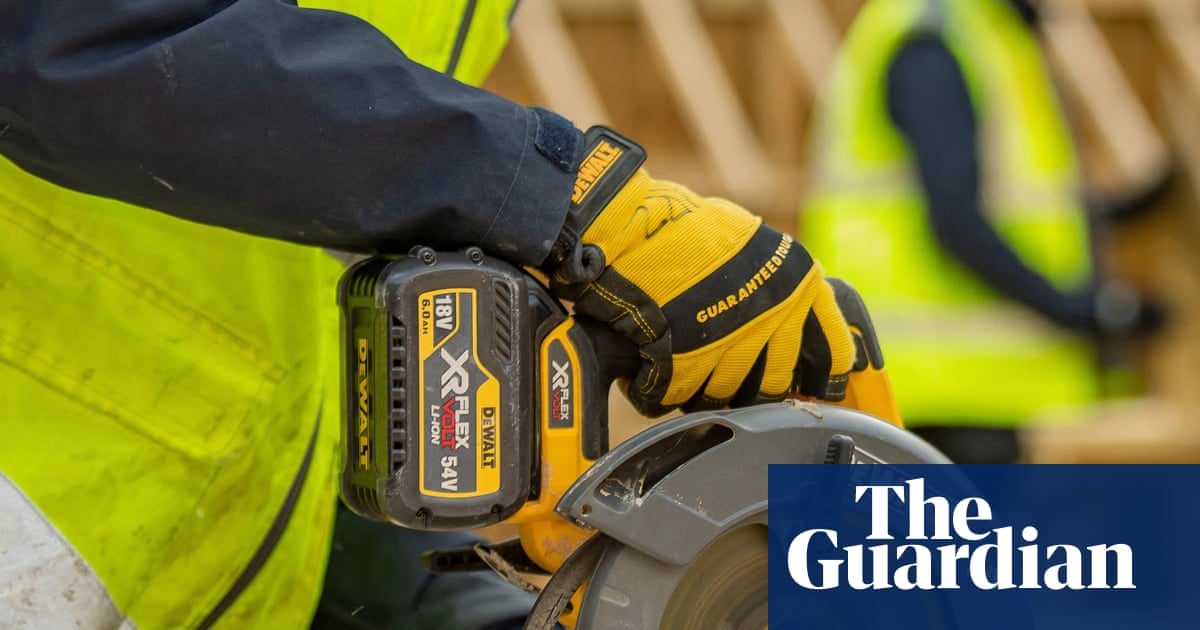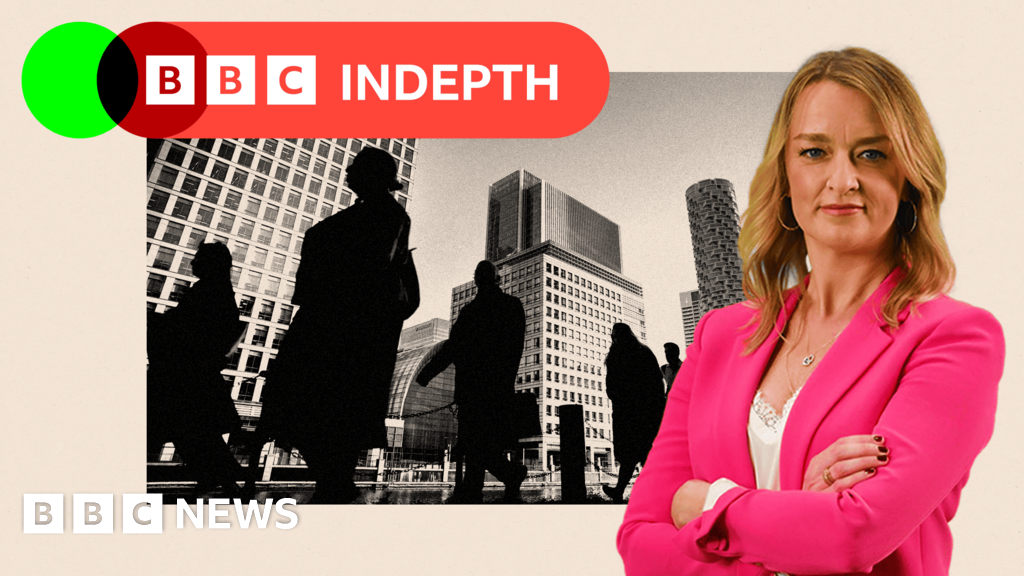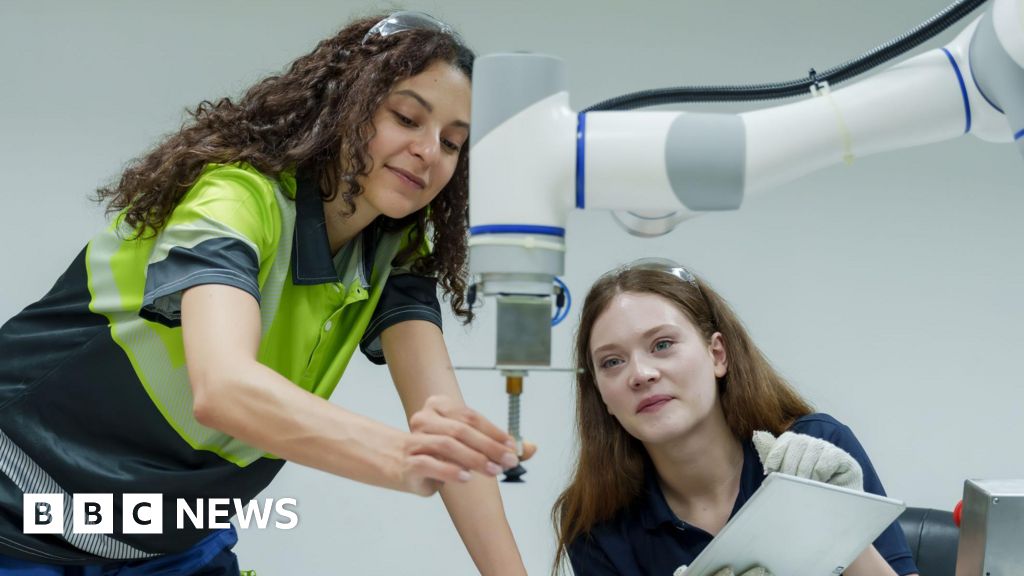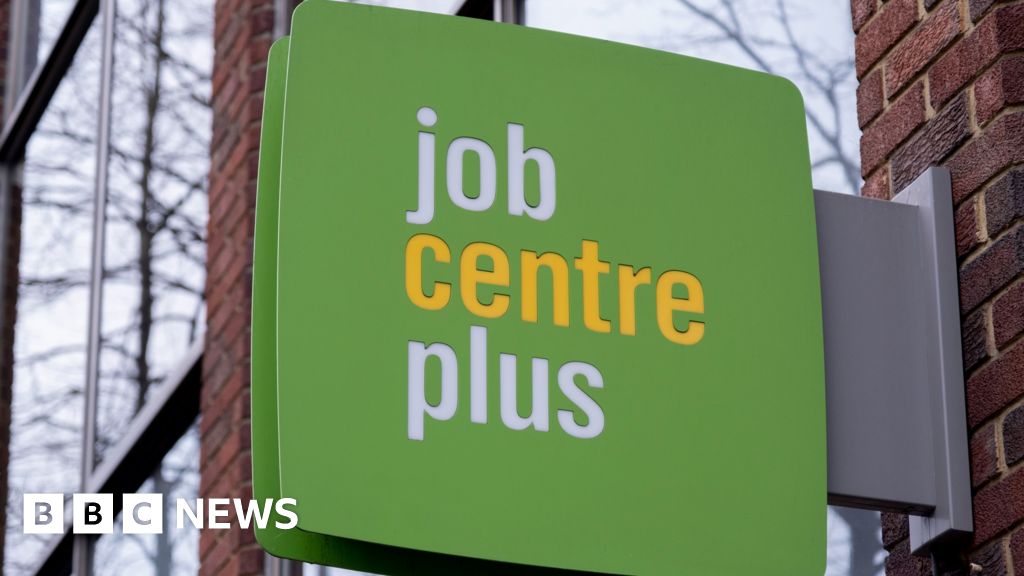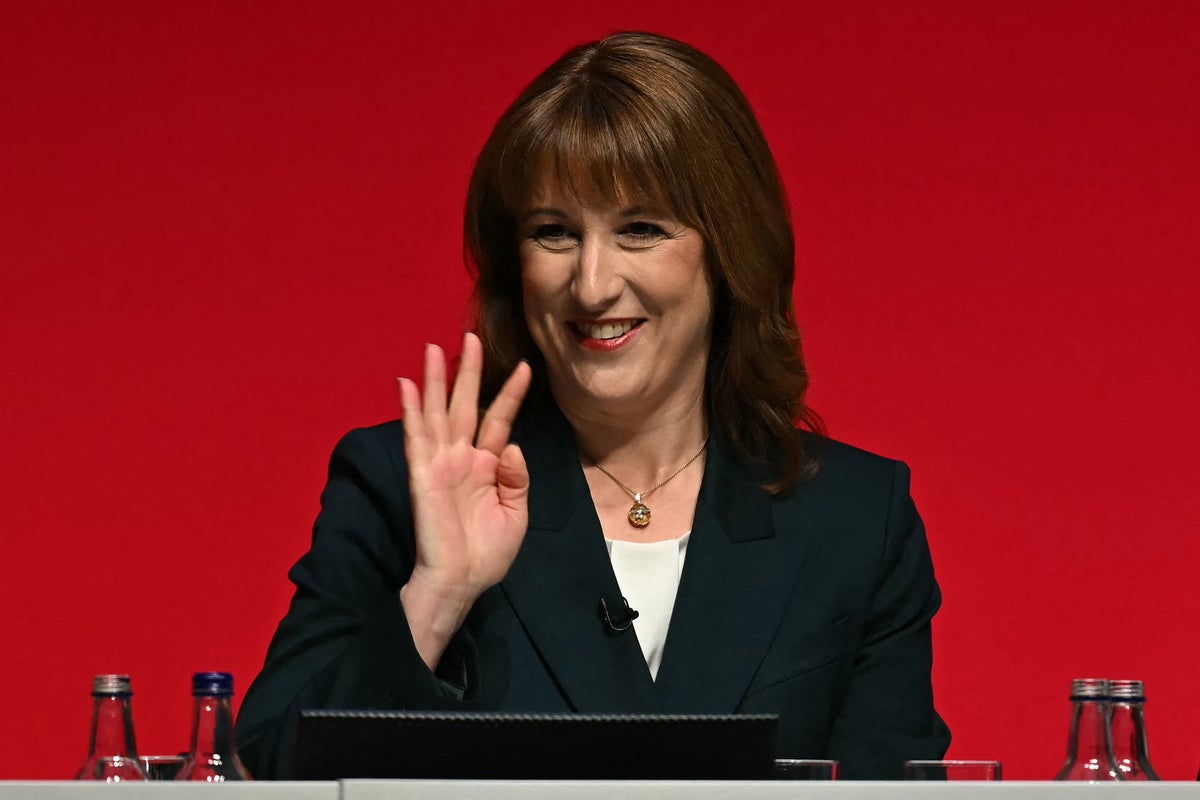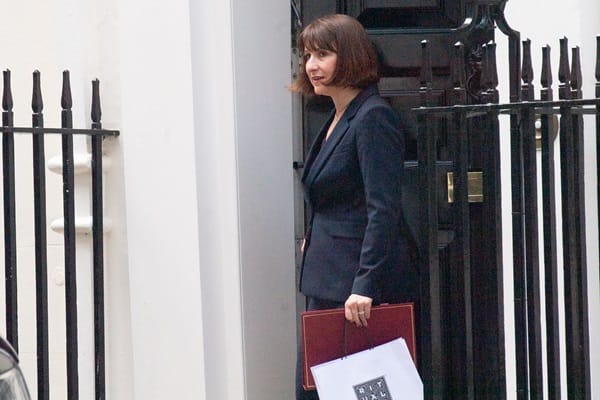#youth-unemployment
#youth-unemployment
[ follow ]
#mental-health #neets #neet #labour-market #apprenticeships #skills-training #journalism-funding #unemployment
fromwww.standard.co.uk
1 week agoHow does London's job market look now compared to before Labour came to power
Finding full time employment in the capital is particularly tough right now. 7.2 per cent of people are unemployed in the capital, a level last seen during the early months of the pandemic. That's up from 5.4 per cent in June 2024, before Labour came into power. Unemployment in London has risen faster than in any other region, according to new data from the Office for National Statistics.
London politics
World news
fromwww.theguardian.com
3 weeks agoWe need change, not just as young people but as a country': Uganda's youth on 40 years of Museveni
President Yoweri Museveni won Uganda's 2026 election with 70% amid fraud allegations, internet shutdown, repression, and widespread youth unemployment and disillusionment.
Careers
fromFortune
1 month agoVerizon chief talent officer says Gen Z grads shouldn't snub retail or hospitality jobs in the current economy | Fortune
Non-degree retail, hospitality and manufacturing jobs can serve as legitimate launch pads to corporate management and career growth for young graduates.
fromFortune
1 month agoGetting hired in 2026 is all about your 'microcredentials' says CEO of $1.3 billion learning platform-this is what he told Gen Z kids to focus on | Fortune
It hasn't been the easiest year to land a job, and in 2026, the employment landscape will likely remain just as volatile. Managers will be grappling with how to deploy AI in their businesses and what skills they really need on the team to bring about efficiencies. Companies will also be wrangling with policy headwinds such as tariffs and the normalization of the base rate, as well as how consumer spending will hold up through the rest of the year.
Online learning
fromLondon Business News | Londonlovesbusiness.com
2 months agoUnemployment has risen by nearly 24% since Labour took office - London Business News | Londonlovesbusiness.com
The Office of National Statistics latest report shows unemployment has risen from 4.1% when Labour took office in July 2024 to 5.1% on Tuesday, an increase of around 24%. This is the sharpest rise in joblessness in several years and takes us back to levels last seen during the recovery from the pandemic. Businesses have been hit hard by Labour's increase to employers National Insurance Contributions (NICs) and National Minimum Wage (NMW).
UK politics
fromwww.dw.com
2 months agoHow Africa can halt the 'new wave' of coups DW 12/15/2025
Two coups and one foiled coup within eight weeks constitute a new dimension even for Africa's recent history. In October, the military in Madagascar deposed the president after weeks of protests. Then in November, soldiers in Guinea-Bissau deposed the head of state shortly after what they considered to be a rigged election. In early December, a group of soldiers calling themselves the "Military Committee for Renewal" announced a takeover in Benin.
World news
World news
fromwww.theguardian.com
2 months agoOutright evil:' anguish and anger over South Africans tricked into fighting for Russia
Seventeen South African and two Botswanan men were allegedly deceived into fighting for Russia, leaving families anguished and highlighting youth unemployment and economic desperation.
UK politics
fromwww.independent.co.uk
2 months agoJobless youngsters to be offered work - and could lose benefits if they say no
Government unveils £820m package offering training, work experience and up to 55,000 guaranteed jobs for young people on universal credit, with benefit sanctions for non-engagement.
fromwww.bbc.com
2 months agoHospitality sector could shed 100,000 more jobs, trade body warns
It's "entirely plausible" the hospitality sector could lose a further 100,000 workers as a result of the Autumn Budget, according to its trade body. UKHospitality claims the risk stems from minimum wage rises, the introduction of a tourist tax and an overhaul of business rates. Its chief executive Allen Simpson says he is particularly worried about the impact on youth employment, as the sector has already shed an estimated 100,000 jobs since the Budget of October 2024, "including many early career opportunities".
UK news
fromLos Angeles Times
3 months agoHalf a million young Californians aren't in school or work. Most are men
If you ask Jodeah Wilson how his life got off track, he'll say it's all about money. He needs money for November rent. He also needs money to pay back the tuition he owes for the spring semester at Sacramento State University, which would allow him to re-enroll. Until then, he's stuck in limbo. "All I need is a goddamn job so I can pay this off myself," he said. But it's been months and so far, he's still unemployed.
Mental health
fromwww.theguardian.com
3 months agoA million young people aren't in a job or training. Britain has a problem | Richard Partington
Almost a million young people are not in education, employment or training. Employers are freezing their hiring plans. Unemployment is at a four-year high. Not all is right in the UK's jobs market, and the outlook is getting worse. Typically it takes a full-blown recession to trigger the type of growth in unemployment that Britain is witnessing today. About 100,000 jobs have been lost from company payrolls in the past year, and the official jobless rate has hit 4.8%, up from 4.1% a year earlier.
UK politics
World news
fromwww.theguardian.com
3 months agoDare to change': Ivory Coast heads to the polls as rivals seek to oust Ouattara
Incumbent Alassane Ouattara seeks a controversial fourth term amid economic growth claims, disqualified rivals, and voter concerns over governance, inequality, and youth unemployment.
fromFortune
4 months agoGoldman economists on the Gen Z hiring nightmare: 'jobless growth' is probably the new normal | Fortune
The challenging U.S. labor market is entering a new normal, according to Goldman Sachs economists David Mericle and Pierfrancesco Mei, who tackled the phenomenon of "jobless growth" in an October 13 note. It resonates with what Federal Reserve chair Jerome Powell memorably described in September as a " low-hire, low-fire " labor market and the fact that, for some reason, "kids coming out of college and younger people, minorities, are having a hard time finding jobs."
Artificial intelligence
Careers
fromFortune
4 months agoHiring managers of the world, you're judging Gen Z too harshly. The brain is still under construction from 14 to 24, science shows | Fortune
Youth unemployment among late teens and twenty-somethings has risen sharply, threatening long-term economic prospects and requiring employer hiring, mentoring, and investment in young talent.
Canada news
fromwww.cbc.ca
4 months agoYoung people are struggling to find work. They say being told to try harder isn't helping | CBC Radio
Young Canadians, especially Gen Z graduates, face unusually high unemployment and struggle to find work despite strong qualifications and extensive job applications.
UK politics
fromFortune
4 months agoUK chancellor pledges 'youth guarantee' for Gen Zers 18 months out of work: a job, a trade, or college placement | Fortune
A youth guarantee will provide paid placements, education or apprenticeships and one-on-one support to abolish long-term youth unemployment among 16–24-year-olds.
Fundraising
fromwww.standard.co.uk
4 months ago'Because of 20/20 Levels, I'm not just surviving I am building something meaningful'
Samuel's father's death at 16 derailed his schooling and made him vulnerable to exploitative groups, while employment programs received grants to tackle youth unemployment.
UK politics
fromFortune
4 months agoUK treasury chief says 'harsh global headwinds' from wars and tariffs are harming the country's economic outlook | Fortune
Worsening global shocks — wars, U.S. tariffs, and higher borrowing costs — have weakened the U.K. economy, prompting possible tax changes and targeted investments.
fromwww.independent.co.uk
4 months agoYoung people to be forced into work under Reeves plan to tackle unemployment
From reproductive rights to climate change to Big Tech, The Independent is on the ground when the story is developing. Whether it's investigating the financials of Elon Musk's pro-Trump PAC or producing our latest documentary, 'The A Word', which shines a light on the American women fighting for reproductive rights, we know how important it is to parse out the facts from the messaging.
UK politics
US politics
fromwww.mercurynews.com
4 months agoLetters: San Jose council must lead on improving animal shelter
Residents demand concrete government action to improve animal shelter management, implement a national recovery plan for unemployed graduates amid AI disruption, and address political violence.
UK news
fromwww.standard.co.uk
5 months agoStand-up comedian Tom Davis says he knows pain of unemployment - as he backs our appeal
Undiagnosed learning differences and early unemployment fueled Tom Davis's disillusion, while The King's Trust and donations work to help unemployed London youths into jobs.
fromForbes
5 months ago5 Tips To Landing A Job Interview In 24 Hours In A Sluggish Market
The U.S. job market continues on a downhill skid, and unemployment is hitting young workers the hardest. Unemployment for 16-24-year-olds just jumped to 10.5%, the first time over 10% since the pandemic. Google searches for "how to get a job interview" spiked 629% last month in the U.S., leaving job seekers anxious. Despite the sluggish market, career experts have tips up their sleeves on landing a job interview in 24 hours.
Careers
Fundraising
fromwww.standard.co.uk
5 months agoWe have raised 80m for charitable causes our new campaign will change lives
Owning the London Standard is a privilege and responsibility symbolising London; the paper pairs cultural coverage with civic campaigns combating youth unemployment and social problems.
World news
fromFortune Asia
5 months agoChina's economic data is famously unreliable-and could be a warning if Trump meddles with the Bureau of Labor Statistics
Politicized or altered economic statistics erode trust, exemplified by China’s inconsistent GDP and youth unemployment figures and pressure to conform to official narratives.
NYC real estate
fromwww.amny.com
6 months agoOp-Ed | Resorts World Queens leads the way in preparing New Yorkers for thousands of new gaming industry jobs | amNewYork
Resorts World New York City will create 5,000 jobs through a $5.5 billion expansion, focusing on preparing local residents for careers in gaming.
[ Load more ]




